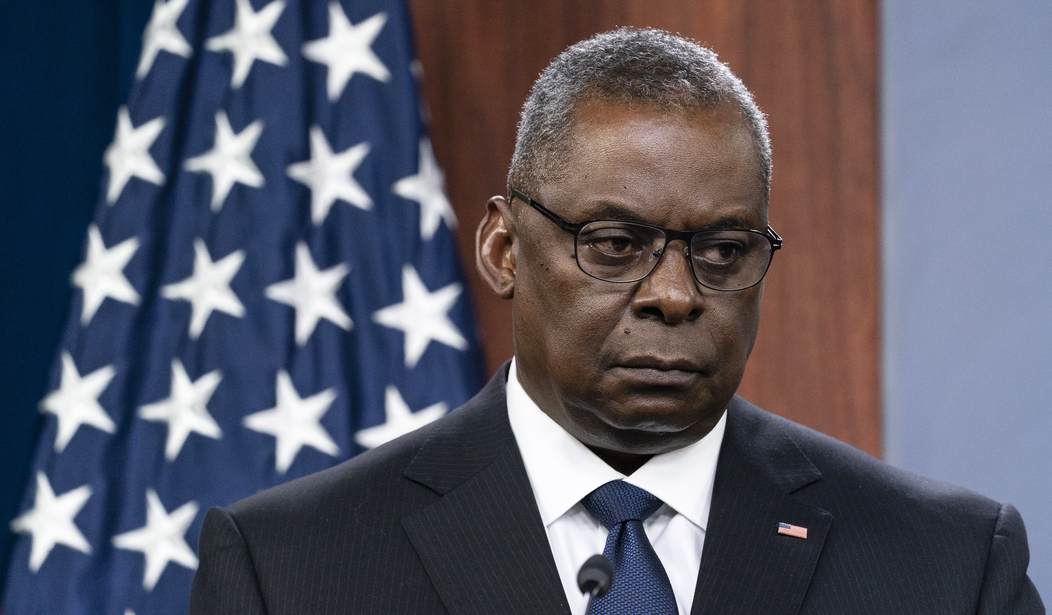None of the rest of us could explain how an enlistee in the Air National Guard got his hands on highly classified military and diplomatic intelligence leaked over the past few months. Now it turns out that the Pentagon doesn’t have a good answer for that question, either. The Wall Street Journal refers to it as “among the most puzzling questions” of the case, and the Pentagon’s lack of explanation for it is not building much confidence in opsec:
The leak was “a deliberate criminal act, a violation of those guidelines,” Pentagon press secretary Air Force Brig. Gen. Pat Ryder said Thursday.
“We continue to review those distribution lists, update them, make sure there’s a need to know,” he said. “And so all indications are, again, this was a criminal act, a willful violation of those, and again, another reason why we’re continuing to investigate and support [the Justice Department’s] investigation.”
Jack Teixeira served in the 102nd Intelligence Wing of the Massachusetts Air National Guard, based on Cape Cod. What would the MANG “need to know” about Mossad communications, Russian and Ukrainian military operations, and diplomat communications? The former chief of Massachusetts Homeland Security, Juliette Kayyem, doesn’t have an explanation for it either:
Unless it is deploying under federal orders, the Massachusetts Air National Guard’s job is to protect the commonwealth. Communications of the leaders of Israel’s Mossad intelligence service and discussions among members of South Korea’s National Security Council on whether to sell ammunition that could end up in Ukraine have no obvious relevance to the suspect’s work, intelligence analysts say.
“The Pentagon’s notion of who should have access to what seems very broad, based on what we know now” about the case, said Ms. Kayyem, now a lecturer at the Harvard Kennedy School.
That raises a significant question of how Teixeira gained access to these documents. Did he get them from within American systems? Or did an outside source provide the documents to Teixeira, and if so, for what purpose? For the moment, all we know about the government’s case is in today’s indictment and arraignment — and thus far, it doesn’t appear that Teixeira has been charged with stealing the material himself, but just for retaining and transmitting it:
The 21-year-old arrested in connection with the leaked documents probe has been charged with unauthorized retention and transmission of national defense information and willful retention of classified documents, which collectively carry a maximum of 15 years in prison.
Jack Teixeira, a member of the Massachusetts Air Force National Guard, made his initial appearance before a federal magistrate in Boston on Friday morning.
The Department of Justice can amend this indictment later to include the theft of the materials if it finds evidence of Teixeira purloining them. The charges at the moment carry enough prison time that they may just decide to stick with the easier case to make. But if Teixeira can’t be linked to access for the materials, then it raises a big question of who did initially steal them, and why.
Other possibilities have emerged, too. Microsoft president Brad Smith had noted this week that intelligence services have tried penetrating gaming-comms platforms like Discord for recruitment and especially for publication and distribution of propaganda. That specifically includes the Wagner Group, the Russian mercenary group participating in the invasion of Ukraine and vying for power in the Kremlin. Did “jackthedripper” obtain and publish these documents on his own, or did he get them from Wagner or another intel service for propaganda purposes?
That’s certainly possible, considering the material exposed:
Among the most sensitive documents are some that appear derived from the U.S. penetration of the Russian government, such as details on how a Russian hacker shared screenshots with the FSB security service on accessing Canada’s natural-gas infrastructure, infighting within the Russian military leadership, internal Russian ministry of defense deliberations on supplying ammunition to the Wagner paramilitary group, and plans by Russian military intelligence to foment an anti-Western and anti-Ukrainian campaign in Africa.
It also would explain why some of the documents reportedly had crude edits that made Russian losses look lighter and Ukrainian losses heavier. On the other hand, some of the material may have been counter-productive to Russian propaganda efforts:
However, several documents also offer evidence that the U.S. intelligence community has infiltrated the Russian military to a considerable degree. In some cases, the United States has been able to warn Ukraine of impending attacks, the documents suggest. The documents also make reference to internal planning by the GRU, Russia’s military intelligence agency, and the Wagner Group, the private military contractor crucial to Russia’s war effort, suggesting both are compromised by the United States.
So perhaps that’s not the most elegant explanation either, but it sounds a bit more believable than the notion that an Air National Guardsman gained access to compartmentalized diplomatic and military intel as a sysop in Cape Cod. And until the Pentagon and Department of Justice connect those dots in court, the actual theft of these materials is still very much an open question.









Join the conversation as a VIP Member